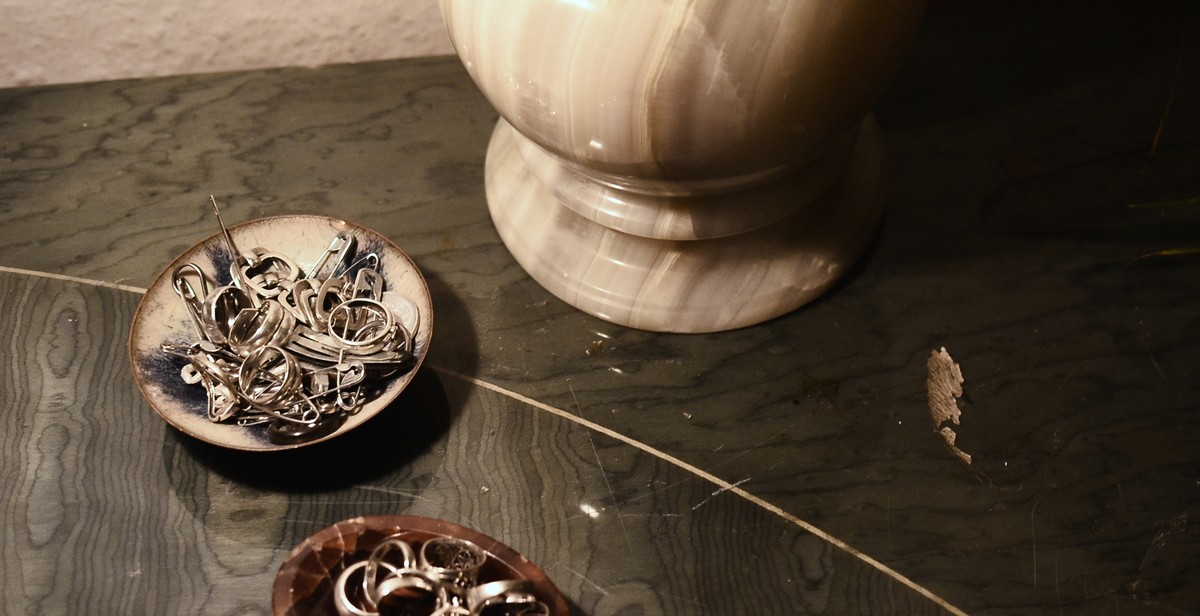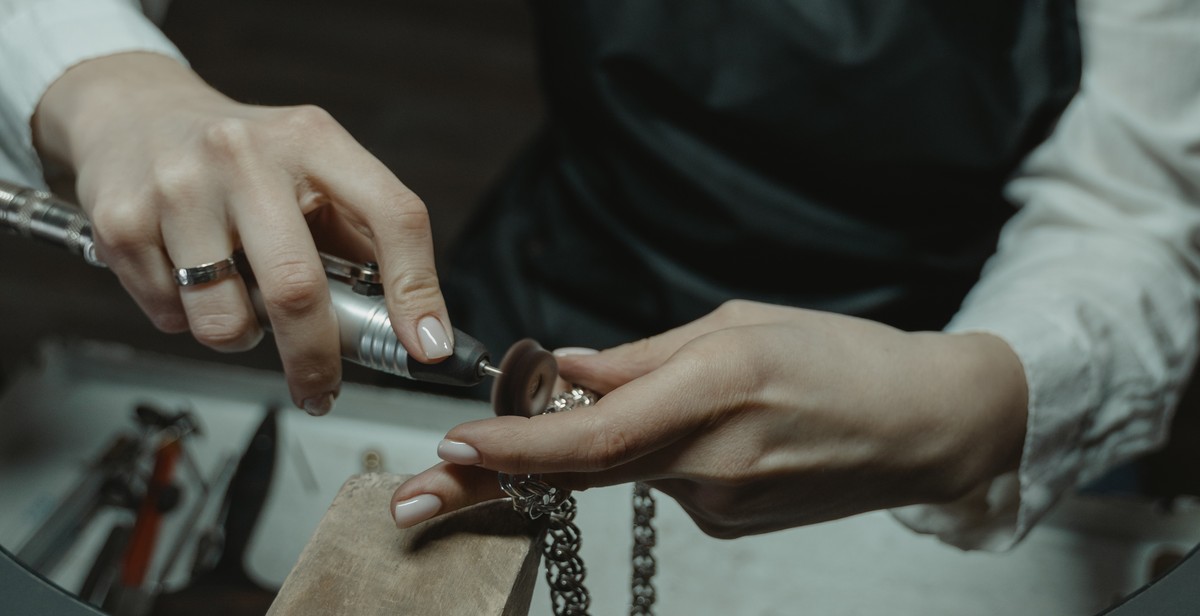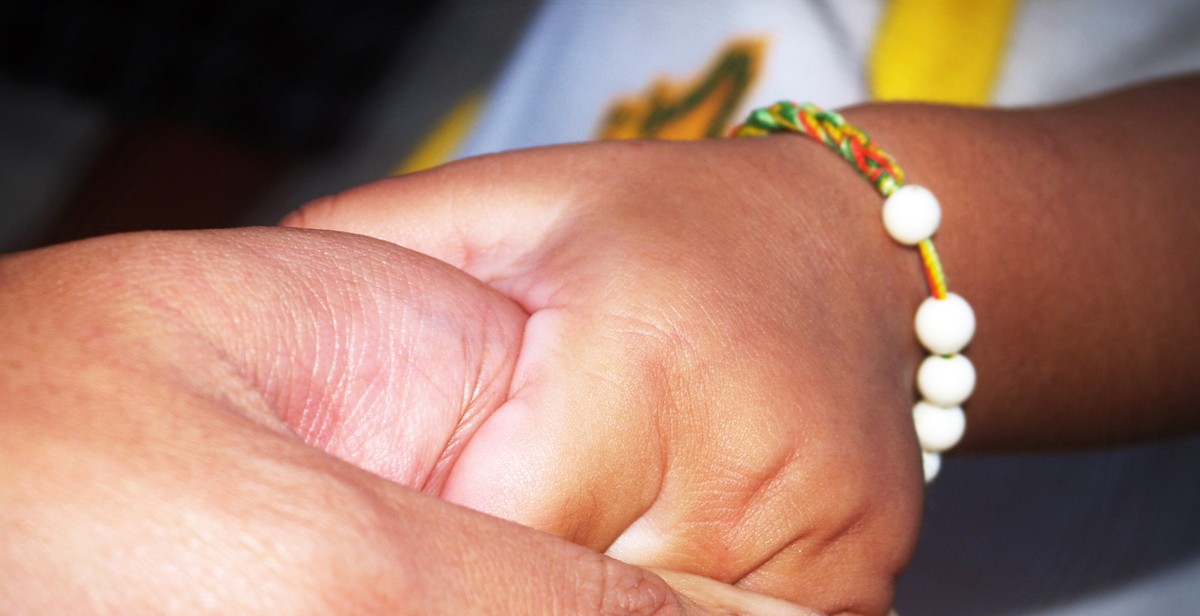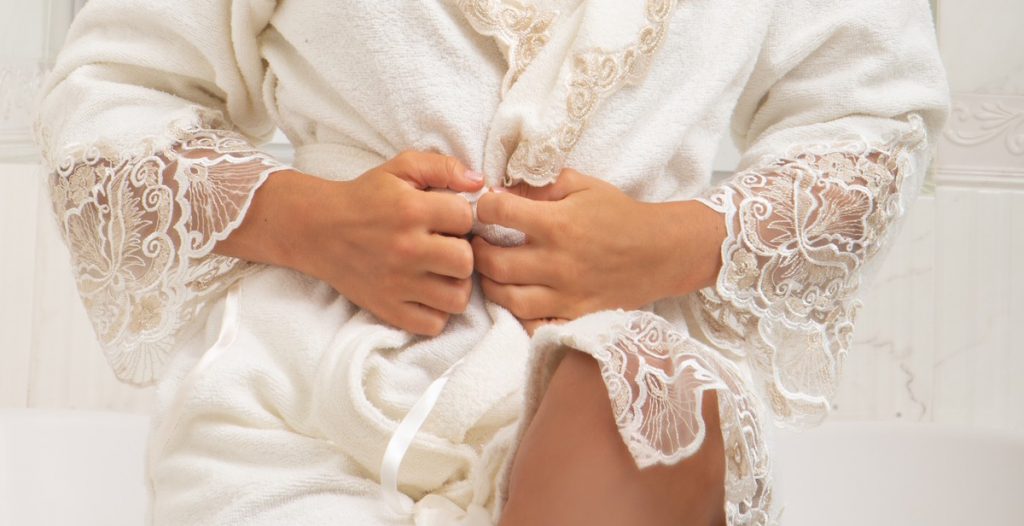How to Clean and Maintain Your Precious Jewelry: A Comprehensive Guide
Jewelry is an investment, both financially and emotionally. Whether you inherited a piece of jewelry from a loved one or bought it for yourself, it’s important to take care of it properly to keep it looking its best. Proper maintenance and cleaning can help prevent damage, tarnishing, and loss of stones. In this comprehensive guide, we will cover everything you need to know about cleaning and maintaining your precious jewelry.
Why it’s Important to Clean and Maintain Your Jewelry
Over time, jewelry can accumulate dirt, oil, and grime from daily wear, exposure to the elements, and contact with skin products. This buildup can cause your jewelry to lose its shine and brilliance, and even affect its structural integrity. Neglecting to clean and maintain your jewelry can lead to discoloration, scratches, and even breakage.
Additionally, some metals and gemstones require specific care to prevent damage. For example, silver jewelry can tarnish quickly if not properly stored and polished, while pearls and opals are delicate and can be easily scratched or damaged by chemicals. By taking the time to properly clean and maintain your jewelry, you can extend its lifespan and keep it looking as beautiful as the day you bought it.
Read on to learn more about how to care for your precious jewelry and keep it looking its best for years to come.

Types of Jewelry and Their Cleaning Needs
When it comes to jewelry, there are many different types and materials that require different cleaning methods. Each type of jewelry has its own unique cleaning needs to keep it looking its best. Here are some of the most common types of jewelry and their cleaning requirements:
Gold
Gold jewelry is one of the most popular types of jewelry, and it’s also one of the easiest to clean. You can use a soft-bristled toothbrush and mild soap to gently clean your gold jewelry. Avoid using harsh chemicals or abrasive materials, as they can damage the finish of your gold jewelry. After cleaning, rinse your gold jewelry thoroughly with water and dry it with a soft cloth.
Silver
Silver jewelry is another popular choice, but it can tarnish over time. To clean your silver jewelry, you can use a silver polishing cloth or a solution of warm water and mild dish soap. Avoid using abrasive materials or harsh chemicals, as they can scratch or damage your silver jewelry. After cleaning, rinse your silver jewelry thoroughly with water and dry it with a soft cloth.
Platinum
Platinum jewelry is durable and resistant to tarnishing, but it still requires regular cleaning to maintain its shine. You can use a solution of warm water and mild dish soap to clean your platinum jewelry. Avoid using abrasive materials or harsh chemicals, as they can scratch or damage your platinum jewelry. After cleaning, rinse your platinum jewelry thoroughly with water and dry it with a soft cloth.
Diamonds
Diamonds are one of the hardest materials on earth, but they still require regular cleaning to keep them looking their best. You can use a soft-bristled toothbrush and mild soap to gently clean your diamond jewelry. Avoid using harsh chemicals or abrasive materials, as they can scratch or damage your diamonds. After cleaning, rinse your diamond jewelry thoroughly with water and dry it with a soft cloth.
Gemstones
Gemstones come in many different varieties, and each type of gemstone requires its own unique cleaning method. Some gemstones, such as emeralds and opals, are fragile and should only be cleaned by a professional. Other gemstones, such as sapphires and rubies, can be cleaned with a soft-bristled toothbrush and mild soap. Always check with a jeweler or gemologist before cleaning your gemstone jewelry.
Pearls
Pearls are delicate and require special care when cleaning. You can use a soft cloth and mild soap to gently clean your pearl jewelry. Avoid using abrasive materials or harsh chemicals, as they can damage the delicate surface of your pearls. After cleaning, rinse your pearl jewelry thoroughly with water and dry it with a soft cloth.
| Type of Jewelry | Cleaning Method |
|---|---|
| Gold | Soft-bristled toothbrush and mild soap |
| Silver | Silver polishing cloth or warm water and mild dish soap |
| Platinum | Warm water and mild dish soap |
| Diamonds | Soft-bristled toothbrush and mild soap |
| Gemstones | Varies by type; consult with a jeweler or gemologist |
| Pearls | Soft cloth and mild soap |

Methods for Cleaning Jewelry
Cleaning your jewelry regularly is important to maintain its beauty and ensure its longevity. Different types of jewelry require different cleaning methods. Here are some effective methods for cleaning your jewelry:
Cleaning with Soap and Water
Cleaning your jewelry with soap and water is the most basic and effective method. You can use a mild dish soap and warm water. Mix the soap in water and soak your jewelry for a few minutes. Use a soft-bristled brush to gently scrub the jewelry. Rinse the jewelry with clean water and dry it with a soft cloth.
Ultrasonic Cleaners
Ultrasonic cleaners use high-frequency sound waves to create bubbles that remove dirt and grime from jewelry. These cleaners are effective for cleaning jewelry with intricate details and hard-to-reach areas. Fill the ultrasonic cleaner with water and add a cleaning solution. Place the jewelry in the cleaner and turn it on. The cleaner will remove the dirt and grime in a few minutes. Rinse the jewelry with clean water and dry it with a soft cloth.
Steam Cleaners
Steam cleaners use steam to clean jewelry. These cleaners are effective for removing dirt, grime, and bacteria from jewelry. Fill the steam cleaner with water and turn it on. Hold the jewelry close to the steam to remove the dirt and grime. Be careful while using steam cleaners as some jewelry may get damaged due to excessive heat.
Polishing Cloths
Polishing cloths are a gentle and effective way to clean and shine your jewelry. These cloths are made of soft and non-abrasive materials that remove dirt and grime without damaging the jewelry. Rub the jewelry gently with the polishing cloth to remove the dirt and grime. You can also use a polishing cloth to remove tarnish from silver jewelry.
Note:
While cleaning your jewelry, be careful not to use abrasive materials or harsh chemicals that can damage the jewelry. Always read the care instructions before cleaning your jewelry.

Tips for Maintaining Your Jewelry
When you invest in precious jewelry, it is important to take proper care of it to ensure it lasts for years to come. Here are some tips for maintaining your jewelry:
Storing Your Jewelry
Proper storage is key to maintaining the quality of your jewelry. When storing your jewelry, keep it in a dry and cool place. Exposure to moisture and heat can cause damage to your jewelry. It is also important to store your jewelry in a soft pouch or a jewelry box with compartments to prevent scratches and tangles. Avoid storing your jewelry in a place where it can get tangled with other jewelry or in a place where it can easily fall and break.
Avoiding Exposure to Chemicals
Chemicals such as perfumes, lotions, hairspray, and cleaning products can cause damage to your jewelry. These chemicals can cause discoloration, tarnishing, and even breakage. It is important to avoid exposing your jewelry to these chemicals. Before applying any of these products, remove your jewelry and put it back on after the product has dried. Also, avoid wearing your jewelry when swimming in chlorinated water, as it can cause damage to your jewelry.
Regular Inspections
Regular inspections of your jewelry can help you identify any potential issues before they become major problems. Check your jewelry for any signs of damage, such as loose stones or clasps, and have them repaired immediately. Also, inspect your jewelry for any signs of tarnishing or discoloration, and clean them using the appropriate cleaning methods.
| Tip | Description |
|---|---|
| Keep Away from Direct Sunlight | Direct sunlight can cause damage to your jewelry. Avoid leaving your jewelry in direct sunlight for long periods of time. |
| Clean Your Jewelry Regularly | Cleaning your jewelry regularly can help maintain its shine and quality. Use the appropriate cleaning method for your type of jewelry. |
| Remove Your Jewelry Before Bed | Removing your jewelry before bed can prevent damage caused by tossing and turning in your sleep. |
- Store your jewelry in a dry and cool place.
- Avoid exposing your jewelry to chemicals.
- Regularly inspect your jewelry for any signs of damage or discoloration.
- Keep your jewelry away from direct sunlight.
- Clean your jewelry regularly using the appropriate cleaning method.
- Remove your jewelry before going to bed.
By following these tips, you can ensure that your precious jewelry remains in excellent condition for years to come.

Conclusion
Proper cleaning and maintenance of your precious jewelry is essential to keep them looking their best and to ensure their longevity. By following the steps outlined in this comprehensive guide, you can easily clean and maintain your jewelry at home without the need for expensive professional services.
Remember to always read the care instructions that come with your jewelry and to avoid harsh chemicals and abrasive materials that can damage delicate stones and metals. When in doubt, seek the advice of a professional jeweler.
Investing in high-quality jewelry is a significant investment, and it is essential to take care of it to ensure its value and beauty are preserved for years to come. By following these simple cleaning and maintenance tips, you can enjoy your precious jewelry for generations to come.
- Regular cleaning and maintenance can help prevent damage and prolong the life of your jewelry
- Use gentle cleaning solutions and avoid harsh chemicals and abrasive materials
- Store your jewelry properly when not in use to prevent scratches and damage
- When in doubt, seek the advice of a professional jeweler
By taking the time to care for your jewelry, you can enjoy its beauty and value for years to come. With proper cleaning and maintenance, your precious jewelry will continue to shine and sparkle, making it a cherished part of your collection for generations to come.

